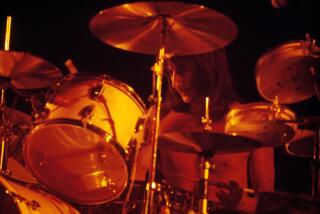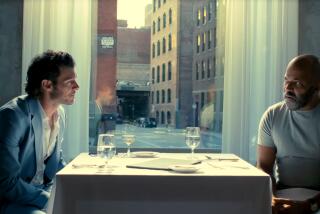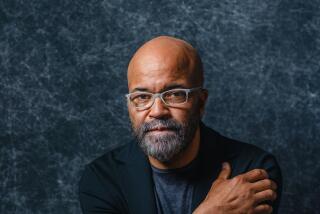T.S. MONK “Monk on Monk” N2K / Encoded Music, * * *
- Share via
Not only does drummer T.S. Monk deliver the bloodline authority implied in this album’s title, he also fashions his father’s music in his own image. In doing so, he’s made one of the best all-star recordings in recent memory.
Monk’s regular sextet, expanded to some 11 pieces, is supplemented with appearances from a host of special guests, including Wayne Shorter, Ron Carter, Herbie Hancock, Clark Terry, Christian McBride, Roy Hargrove, Grover Washington Jr. (who sounds better here than on some of his own recordings) and others. All integrate seamlessly into the proceedings. The disc also utilizes an expanded brass section that can include French horn, tuba or baritone.
The arrangements from the T.S. Monk ensemble’s regular trumpeter, Don Sickler, wisely emphasize the moods and melodies of Monk the elder’s material while giving only hints of the composer-pianist’s rhythmic quirkiness. The younger Monk showcases his percussive chops on the opening number “Little Rootie Tootie,” then steps back to let his distinguished guests take the spotlight. Shorter contributes inquisitive soprano on “Crepuscule With Nellie,” trumpeter Wallace Roney sounds more like himself and less like Miles Davis on “Ugly Beauty,” and Hancock is irresistibly attractive on the obscure “Two Timer.”
Of the pianists, Geri Allen gives the most Monk-like performance, Danilo Perez the most eccentric. Vocalists Nnenna Freelon and Diane Reeves get in each other’s way combining on “Suddenly” (“In Walked Bud”). Singer Kevin Mahogany works with Johnny Hartman-inspired stylishness on “Dear Ruby” (“Ruby My Dear”).
The disc’s interactive CD-ROM liner notes, while providing interesting visual glimpses into the recording session, serve promotional rather than informational interests. And true Monk fans might wish for less polish in the music and more of the rough-and-tumble action that the late pianist imparted to his play.
But as an ensemble piece, “Monk on Monk” comes closer to the spirit of the late, great innovator than Monk’s own ensemble date, the 1968 recording “Monk’s Blues,” that seemed to alienate the pianist behind Oliver Nelson’s arrangements.
*
Albums are rated on a scale of one star (poor), two stars (fair), three stars (good) and four stars (excellent).
More to Read
The biggest entertainment stories
Get our big stories about Hollywood, film, television, music, arts, culture and more right in your inbox as soon as they publish.
You may occasionally receive promotional content from the Los Angeles Times.










